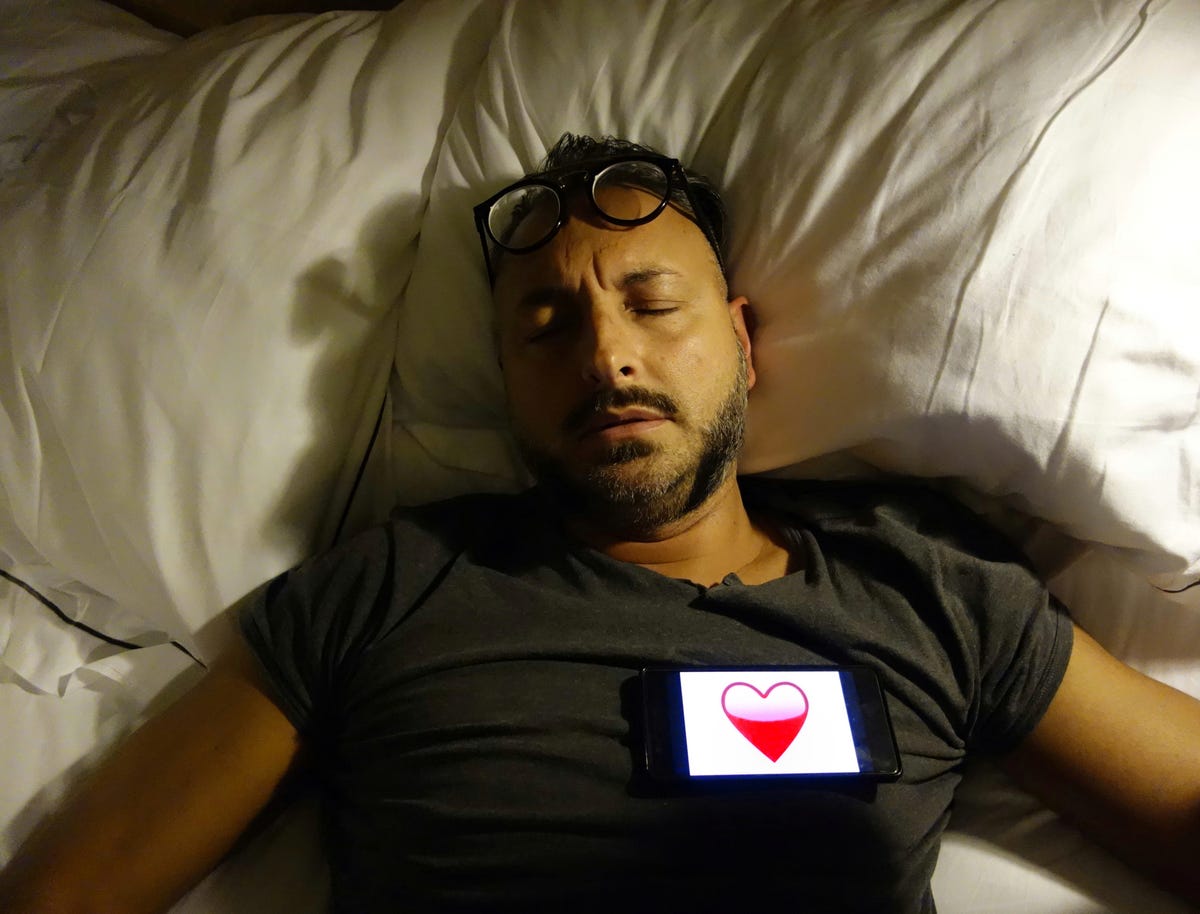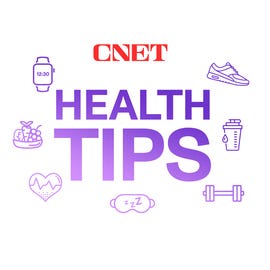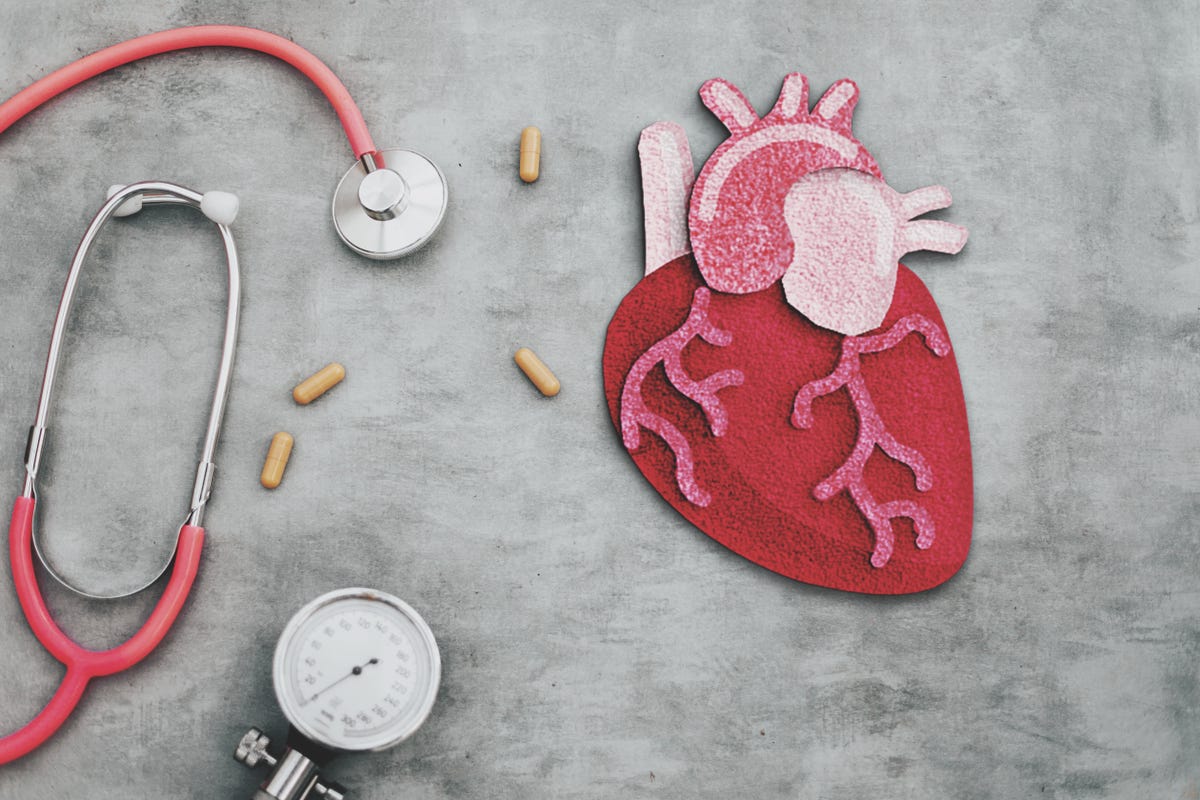It’s 2 a.m., and you’re clammy and flustered, legs pretzeled between the sheets. You know you have to wake up in five hours, so you start taking deep breaths of the stale air that, even in its stillness, feels like your only friend when you’re fighting for sleep while wide awake.
Having an unrestful night of bad sleep is part of life every once in a while. But consistently missing out on those seven or so crucial hours of shut-eye raises your risk for various mental and physical conditions or symptoms, including those that can affect your heart health.
Not all of this is necessarily old news, however. It wasn’t until the summer of 2022 that the American Heart Association added sleep duration to its list of Life’s Essential 8 things people should do to improve their cardiovascular health — the umbrella term for how your heart and blood vessels function.
The good thing about sleep, though, is that there are plenty of ways to improve it. While persistently poor sleep hygiene does leave you more vulnerable to disease, the impacts of getting poor sleep are cumulative, and you can establish new habits for improving sleep that work for you.
Here’s exactly how poor sleep affects your heart health, and what you can do about it.


Your blood pressure (and stress level) will probably go up


Over time, not getting enough sleep may raise your blood pressure. One reason for this, as explained by the Mayo Clinic’s Dr. Francisco Lopez-Jimenez in a post from the Clinic, is that sleep helps the body control hormones needed to manage stress and metabolism.
Research shows that sleep deprivation may elevate cortisol levels, the body’s stress hormone. Too much of this over time may raise blood pressure, which can lead to heart disease, the No. 1 cause of death in the US.
This might be a chicken-or-egg scenario for the insomniacs out there, as well as people whose hearts start pounding when they realize their alarm will be going off in only a few hours. You may be stressed about sleep because you’re not getting enough of it, which makes the acute stress snowball into a long-term stress situation.
If you’re looking for more tips on getting some shut-eye, check out this five-minute “to-do list” hack that helped one of CNET’s editors handle his insomnia.
Over time, you might have a higher risk of having a heart attack or stroke
Because poor sleep can contribute to high blood pressure, which harms cardiovascular health, it makes sense that poor sleep has also been linked to a higher risk of cardio-cerebral vascular events, including things like stroke or heart attack.
A newer study from this year found a link between insomnia and getting five or less hours of sleep and an increased risk of myocardial infarction (heart attack).


Fatigue may lead to other harmful (but not irreversible) habits
Getting a poor night’s sleep before the next day’s workout can ct your exercise by making it feel harder, possibly more painful and just less fun overall. Feeling too tired to work out means you’ll do it less often, and you shouldn’t force it if your body needs rest. But over time, a lack of physical activity caused by poor sleep (or anything else) can increase your risk of cardiovascular disease.
In fact, regular physical activity is one of the most important things you can do for yourself and for your heart health, and it doesn’t need to be a full-blown workout each time. Physical activity may reduce your blood pressure, as well as help you manage cholesterol, blood sugar and other factors.
Because sleep deprivation also affects our body’s hormones, your appetite may also be affected.
As Rebecca Stetzer, a registered dietician, explained in a post for Gundersen Health System, hormones that regulate hunger will be disrupted following poor sleep and may have you craving foods that are high in added sugar, fat or sodium more often than normal. This means you might be feeling so exhausted that you’re looking for the quickest — and often sugary — snack that will give you that jolt of energy you need.
Like lack of movement, diets that are too high in sugar or sodium in relation to the other nutrients our bodies need can increase the risk of cardiovascular disease.
On the whole, getting enough sleep is one piece of your heart health, but it’s a big one. Along with your levels of physical activity, how many nutrients you eat, lifestyle factors like smoking and whether you’re able to check in every once in a while for a doctor’s visit, sleep figures into how healthy your heart is.
But daily routines like diet and exercise are never permanent — you can tweak them however you choose at any time, or whenever you’re able. Here are some more tips for fixing your sleep, and what to know about screening for heart disease.
The information contained in this article is for educational and informational purposes only and is not intended as health or medical advice. Always consult a physician or other qualified health provider regarding any questions you may have about a medical condition or health objectives.
Mattress Buying Guides
Preference
Mattress Reviews
Other Sleep Guides
Bed Accessories
Sleep Tech


